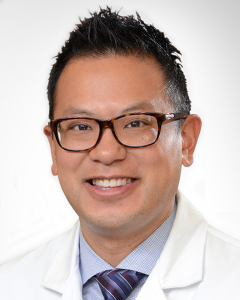Traveling for surgery is trending — about 14 million people a year travel internationally for medical care. Many travel to find a surgeon who will perform cosmetic surgery on a cash basis, returning home quickly. And that’s where things can get complicated. A 2024 report from the Centers for Disease Control and Prevention (CDC) found that 93 Americans had died after cosmetic surgery in the Dominican Republic.
What Is ‘Destination Cosmetic Surgery’?
Destination cosmetic surgery usually refers to invasive surgeries of the face, breast and body. The most common are breast augmentation — enlargement with an implant — and abdominoplasty, also known as the tummy tuck. Less common but frequently sought procedures include facelifts, rhinoplasty, liposuction and the Brazilian butt lift.
Surgeries in the United States
“Destination surgery” should not necessarily carry a negative connotation. Traveling to meet with a recognized expert in the United States can be different from traveling outside the country to get a lower price on surgery.
For example, it can make sense to seek out specialized care for lymphedema surgery, which is sometimes needed by breast cancer patients who experience swelling when lymph nodes are removed or damaged. It’s common for surgery and all care to be handled by an experienced medical team before the patient heads home.
Most of this type of destination surgery is covered by insurance and includes post-op care because the expertise may not be available in the patient’s home city or state.
Surgeries Outside the United States
Let’s be clear: Mexico and Brazil — two of the most popular destinations for cosmetic surgery — each has experienced plastic surgeons. The problem is, most people traveling for cut-rate procedures are not meeting with those world-class surgeons, whose prices do not differ from similarly trained doctors in the United States.
Patients should keep in mind that cosmetic surgery is not simple — it does not come with a guarantee. Destination cosmetic surgery comes with an additional layer of risks and complications. For one, the surgeon who operated on you will not be there when you go back home. Because post-operative care is just as important as the surgery, that can lead to problems.
Before You Make Travel Plans
Before you commit to destination cosmetic surgery, consider these questions:
- Credentials and accreditation. Typically, when you consult with a plastic surgeon near your home, you can verify that they are board certified. Those qualifications also are checked by the facilities where the procedures take place. Outside of the United States, it may not be clear what the rules are. You may not know what the certification process is, and there’s generally no equivalent of the American Board of Medical Specialties to regulate the process. There also may not be standards regarding how a surgeon can advertise their qualifications.
- Post-operative care. With any invasive procedure, you must maintain the incision. Dressings or drains need to be checked, removed or changed, in order to examine the wound and make sure it’s healing. That kind of follow-up is not possible if you are not in the same country as the person who performed your surgery. You may exchange phone calls or images, but that’s not the same as sitting in front of your surgeon and having them take a look.
- Emergency care. If you have a problem with your tummy tuck after you’ve returned home, your surgeon is going to say go to the ER. Whatever plastic surgeon is on call will be alerted, but that surgeon won’t know your history. In some places, the on-call physician might not be a plastic surgeon at all but rather a general surgeon who doesn’t have experience with your type of wound or surgery.
The Bottom Line
These concerns aren’t theoretical. It’s not unusual for ER physicians to see patients who are experiencing complications from destination cosmetic surgery. Do your research. Everyone wants the best price, but if the prices quoted seem too good to be true, there’s probably a reason.
Reduce Your Risk of Breast Cancer
Breast cancer is the second most common type of cancer among women in the United States. However, with early diagnosis, breast cancer has a relative survival rate of better than 90 percent. Monthly self breast exams can help you be familiar with how your breasts normally look and feel.
Download a self-examination guide here





